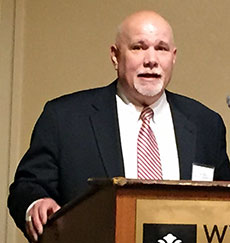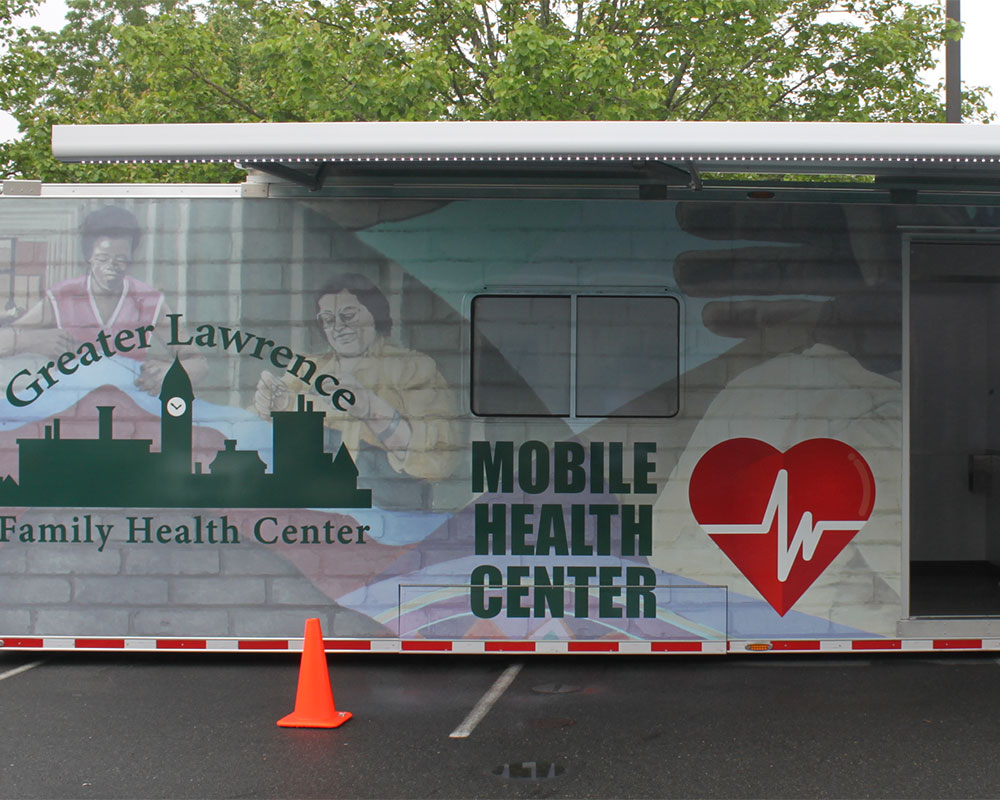By John M. Silva
President & CEO, Greater Lawrence Family Health Center

Greater Lawrence Family Health Center President and CEO John M. Silva. (WHAV News photograph.)
A virulent flu season is underway and the number of opioid overdoses continues to climb, yet public health is more vulnerable than ever because community health centers are running out of time and money. Why? Critical federal funding for our programs expired on Oct. 1, 2017. Since then, all community health centers have been operating under a “funding cliff.” This phrase alone would lead one to think that this issue is solely about money. It is much more. It is about people and how decisions made — or left unmade — can have a ripple effect.
When people are sick, they need an accessible place to go for affordable care. Greater Lawrence Family Health Center serves over 60,000 patients and more than half the residents of the City of Lawrence. As such, we are committed to maintaining our full range of high-quality services for all patients — but it isn’t easy, and we’re worried we will soon have to take some of the same drastic measures facing community health centers in other areas of the U.S.
Community health centers around the country are facing tough choices. They are laying off staff, cutting back services, such as treatment for opioid addiction or onsite ultrasounds for pregnant mothers, and planning for site closures. Health care for more than 27 million people is being managed on a month-to-month basis because Congress has failed to extend funding for community health centers.
The U.S. Department of Health and Human Services has projected that the funding cliff could result in the closure of 2,800 health center sites throughout the U.S. and a loss of health care access for up to 9 million patients. In Massachusetts, funding losses could approach $196 million with 140,000 losing access to care. For Greater Lawrence Family Health Center, a loss of close to $3 million in funding puts close to 3,000 patients at risk.
This is not how a health system should be operated — particularly the community health center system that has served the nation so well both in terms of saving lives and dollars. Health centers like ours have been providing care for more than 50 years, opening access to quality services and providing a more affordable option for preventive care than a hospital emergency room. Not only do we generate $24 billion in health care cost savings, we are also innovators that work with community partners to respond to public health crises, such as the opioid epidemic and the recent disasters that struck Texas, Florida, California and Puerto Rico.
There is little doubt that health centers have contributed significantly to cost savings for the American taxpayer. Our record of success is why community health centers have earned bipartisan support from U.S. presidents and lawmakers. And here’s the irony behind the health center funding cliff: most everyone agrees that Congress should extend funding and act now. Lawmakers must move beyond the political debate and focus on public health.
Our Massachusetts congressional delegation and state leaders have a long history of advocating on our behalf, but they need your help now in spurring national bipartisan action. Sign up as a health center advocate today at www.hcaadvocacy.org/join to let elected officials know what your health center means to you and your community or for more information contact Rich Napolitano, Senior Vice President at Greater Lawrence Family Health Center at [email protected] or 978-722-2870.

